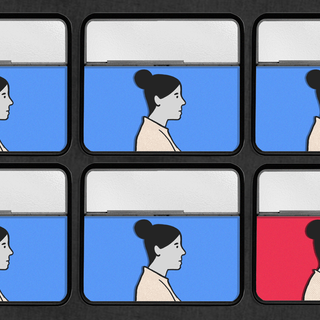People lay witness to a magic trick at 12:01 every January 1st. The human potential suddenlyseems limitless, all goals instantly achievable. A new exercise regime, a hobby, a book gathering dust on the shelf — all are within bounds. The trick repeats itself every Monday of a new week or every start of a new month. How do clean slates come to breathe an air of aspiration and ambition?
This tendency is called the “fresh start effect.” The phenomenon relies on “temporal landmarks” — like days, weeks, months, holidays — that appear to be more meaningful than others. These landmarks work as a reset button to put things into perspective and help people focus on goals. Think of the new thing you resolve to do after a birthday, or the piano learning lesson that makes itself pressing every new year.
How does the anticipation of a temporal landmark affect behavior? At its most instinctive level, a new beginning works to recalibrate people’s expectations.
“Whether it’s the first day on the new job, the beginning of a new month of sales, or simply the start of the week on a Monday morning. ‘Firsts’ have a way of decoupling your past performances from what is to come next,” a blog noted.
Research backs the prevalence of the fresh start effect. In 2013, a study looked at gym attendance data among university students. It found the likelihood of attending the gym increased at the beginning of a new week, month, semester, birthday — as well as soon after term breaks. A follow-up study to the research also found people are more likely to commit to career and education goals after these new time periods. Another study found people approaching a new decade in age (29, 39, so on) were more likely to search for meaning and try to improve themselves. 48% of the participants, for instance, were more likely to run a marathon for the first time because of the temporal landmark. In other words, the effect plays a role in shaping aspirations.
Related on The Swaddle:
Why We Expect So Much of Each New Year — and Every January Feels Like a Letdown
“Humans are obsessed with the idea of a fresh start,” Satviki Sanjay wrote in The Swaddle last year. “They demarcate the passage of time and create new mental accounting periods, which relegate past imperfections to a previous period, induce people to take a big-picture view of their lives, and motivate aspirational behaviors. By making us feel more distant from our past failures, such dates seem to appear more effective in driving change.”
One argument is when a landmark event (such as a birthday) or a future desirable state (such as wanting to change careers) are both made evident together, a person may see the discrepancy between the current self and the desired self in sharp scrutiny which may inspire self-improvement behaviors.
Think of it this way: people expected January 1st, 2022 to separate the exhausted and anxious individual living under a pandemic from a potentially free person. Or how, say, a birthday creates an invisible ideological barrier between a 29-year-old and a 30-year-old.
Another theory is these calendar dates work as deadlines that people may themselves follow to achieve goals. People may “be able to construct fresh starts themselves by strategically ‘creating’ turning points in their personal histories,” the 2013 researchers argued. For instance, someone may move to a new residence to start over at the start of a new month. The effect then presents a new way in which people may be effectively nudged to begin pursuing their aspirations. The fresh start effect encourages people to take advantage of regularly programmed events — the prospect of starting a new exercise regime on a said Monday is deeply inspiring.
Of course, there’s a loophole in relying too much on temporal landmarks to actually act on goals. “Let’s say you intended today to be your fresh start – but suddenly find that lunchtime has arrived and you haven’t done half as well as you planned. Maybe you intended to do three hours of deep work in the morning, but instead, you wasted most of the time replying to emails and reading the news,” a blog explained. The end result can often be people letting the task slip by, or using these dates as crutches to avoid doing things. In that sense, the effect becomes a double-edged sword with time as its blade.
In the end, time is a matter of prescription. How people medicate themselves will determine what value and meaning fresh starts hold for them.




